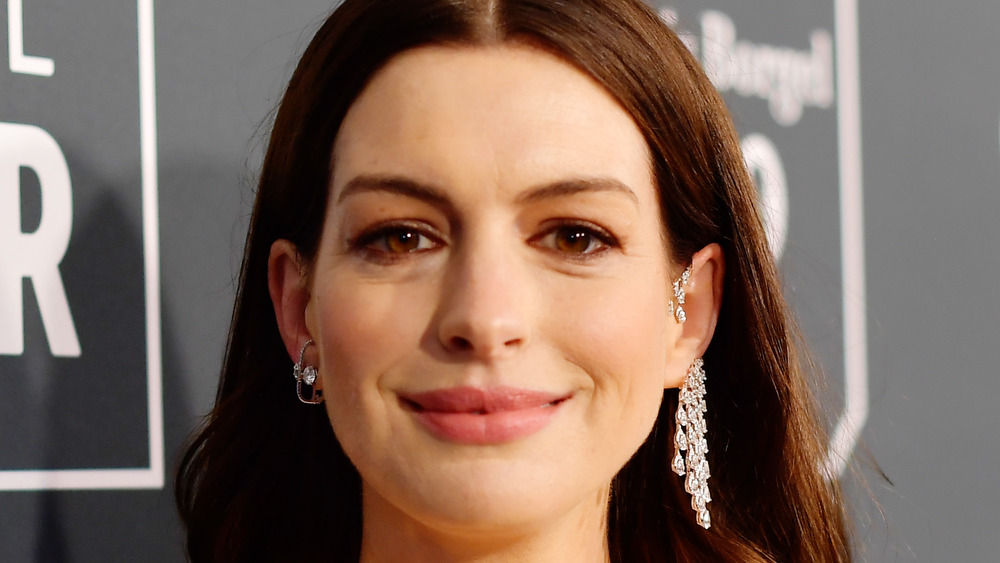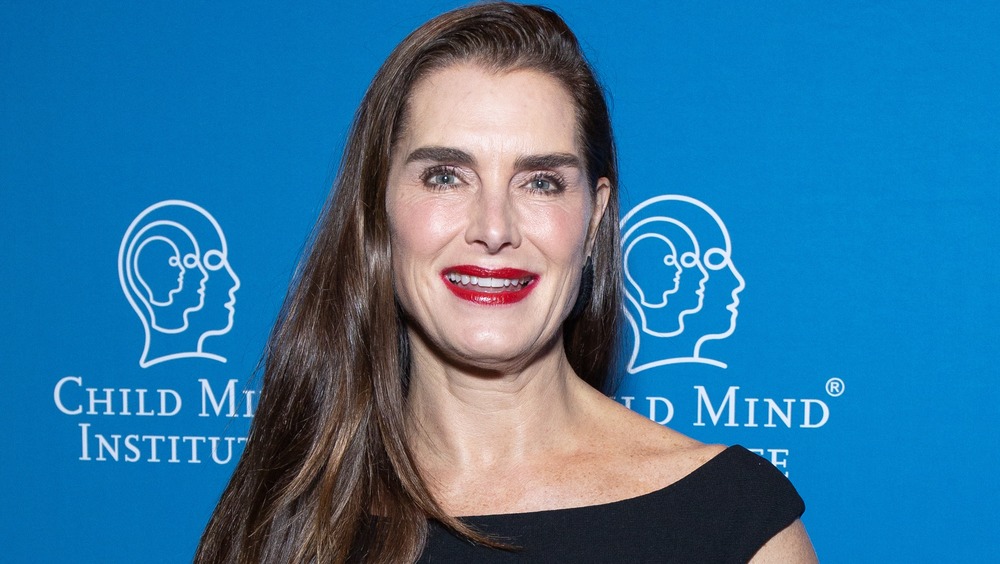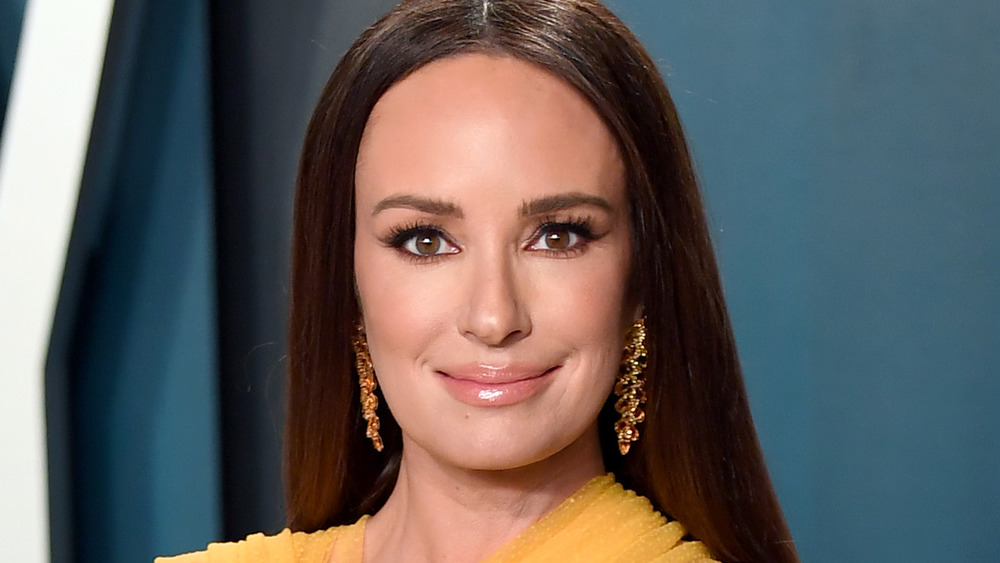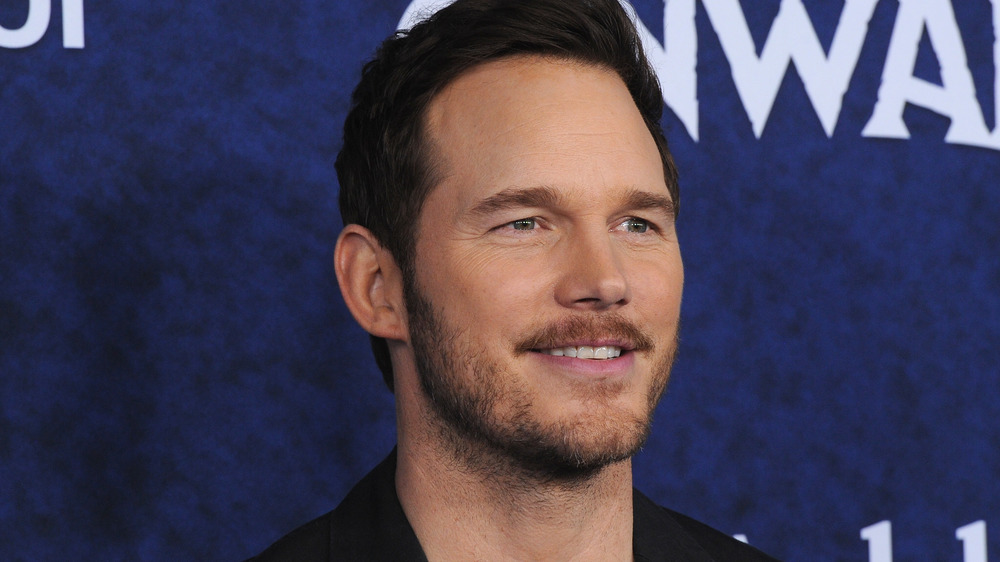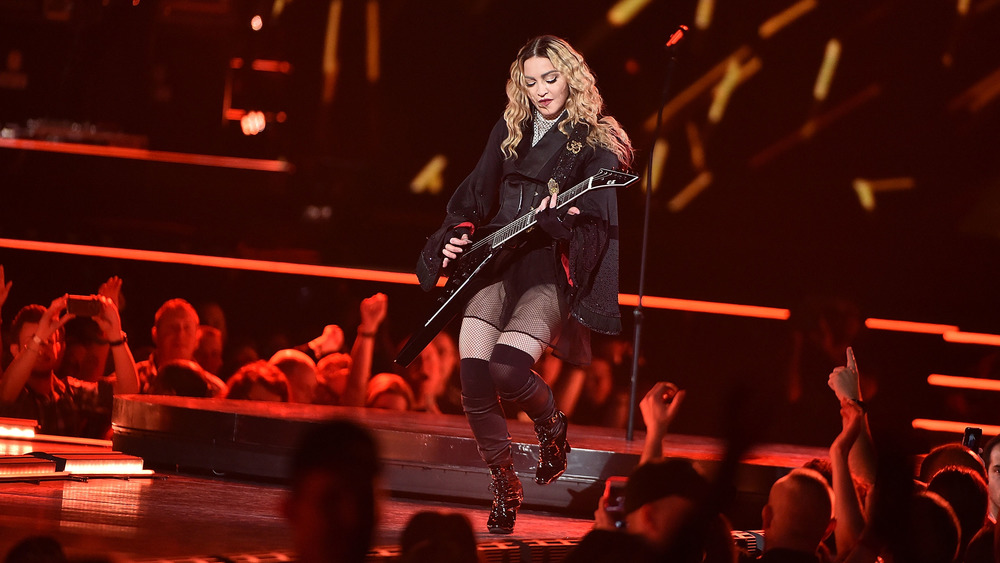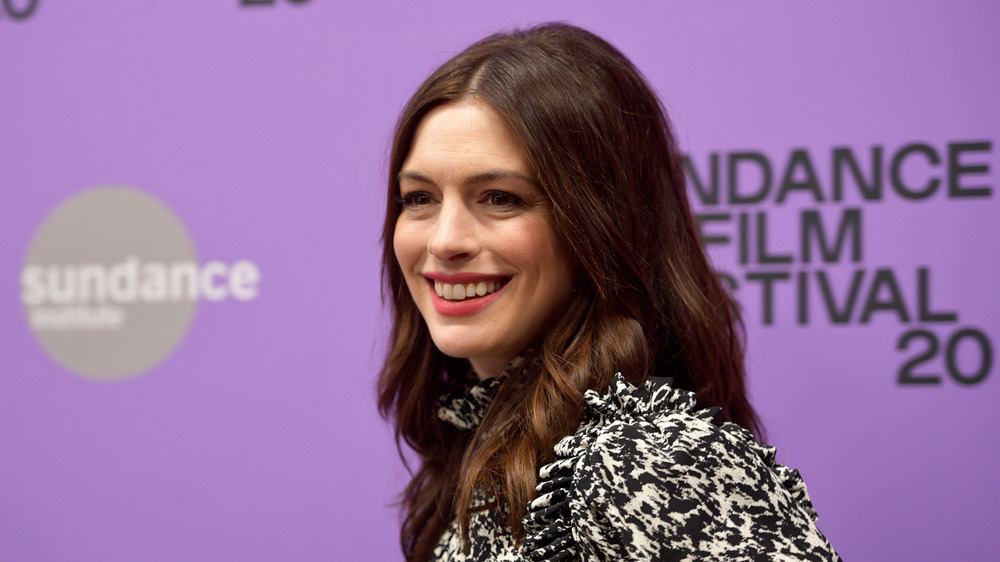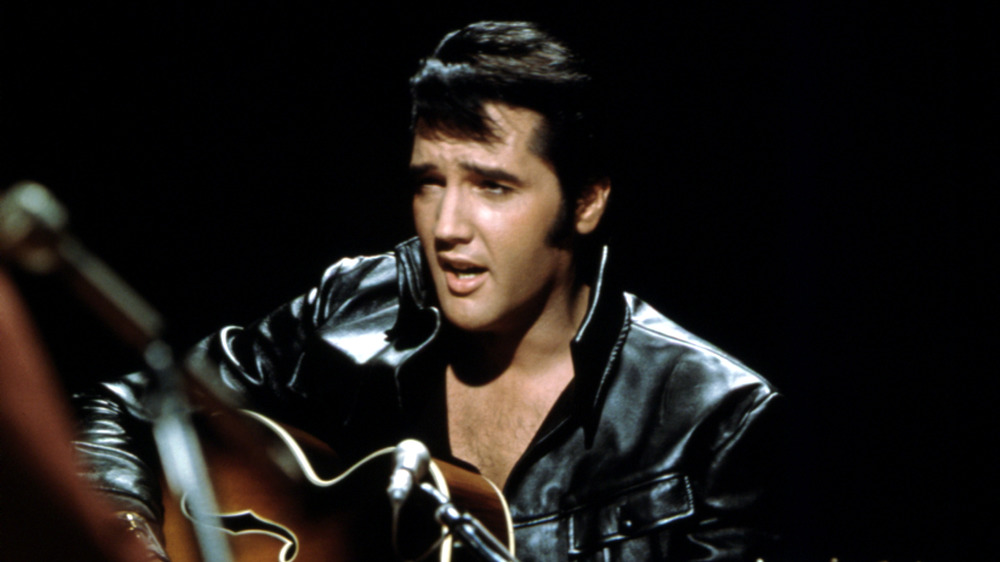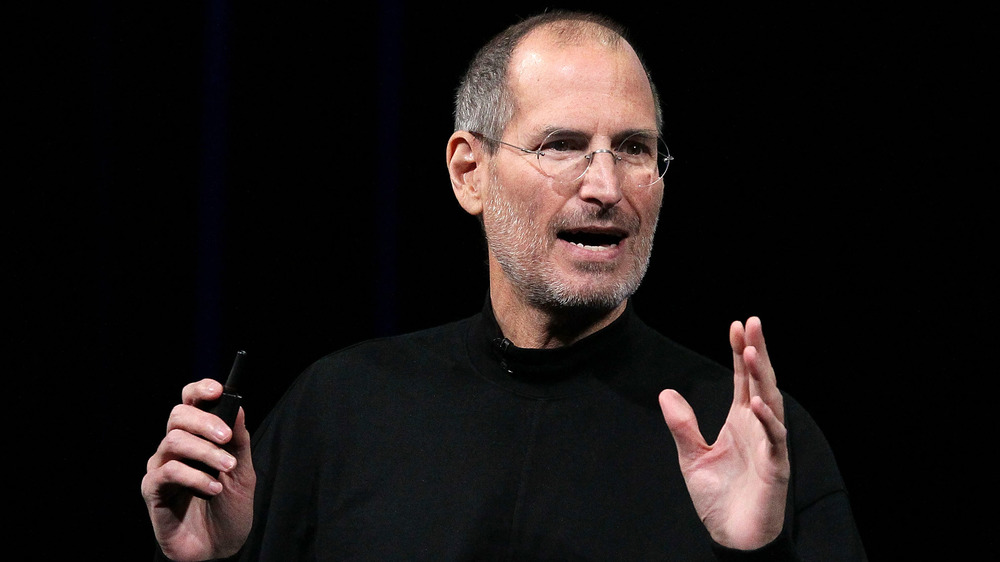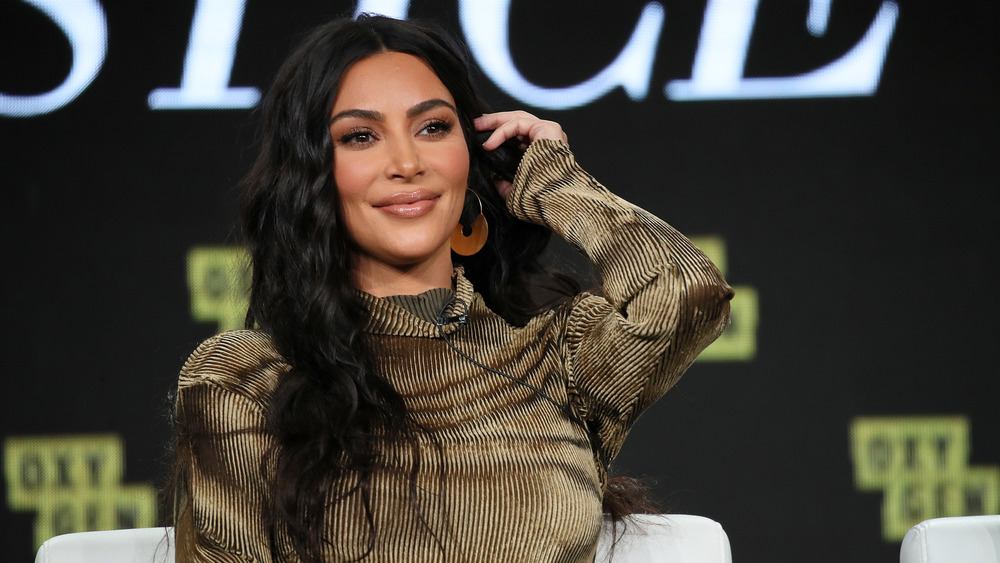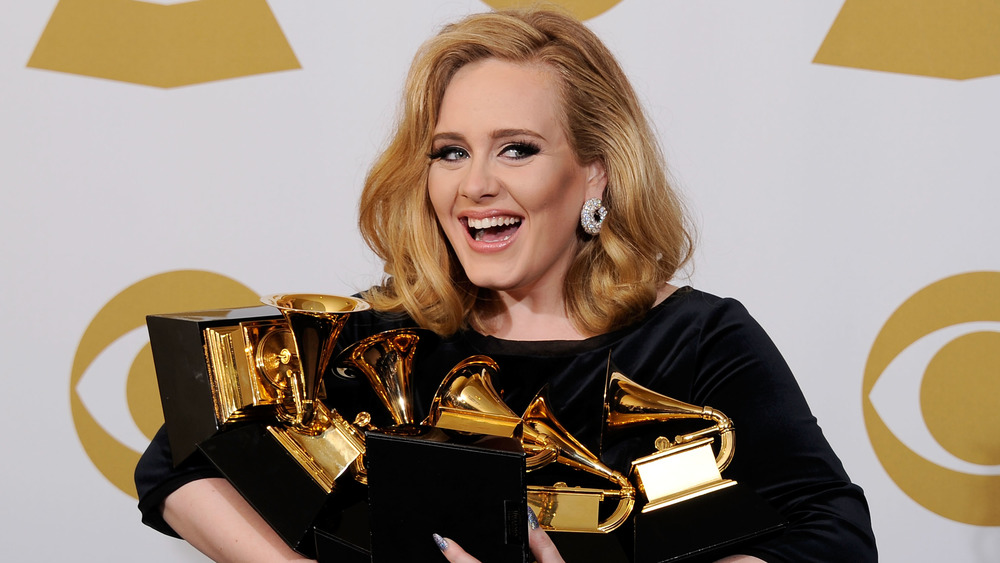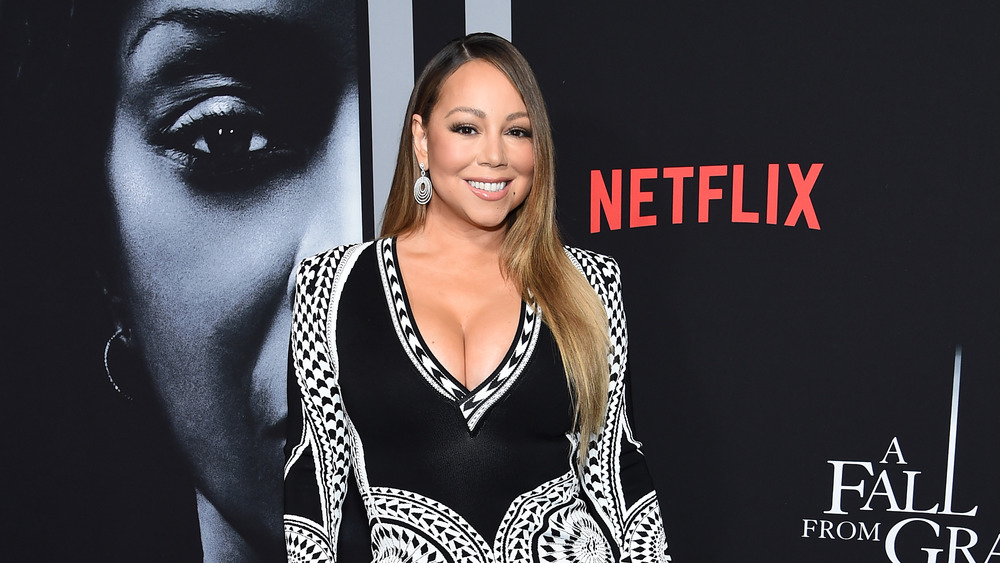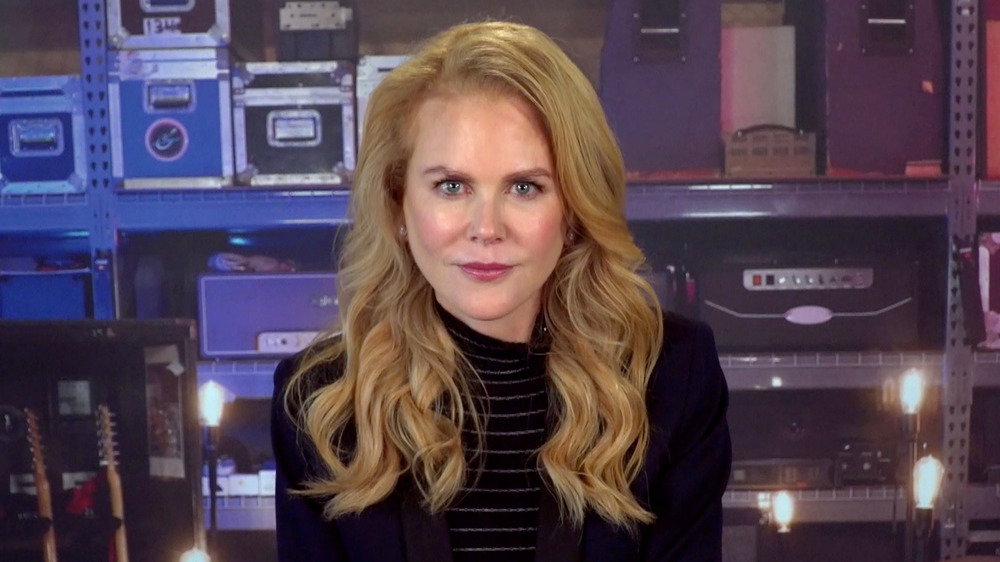Strange Things Celebrities Have Done To Lose Weight
It's hard to find a single soul who doesn't worry about eating healthy or cutting back on carbs, sugar, processed water, or whatever the latest "Bad Food" is. Simply put, it's a national obsession. When you live in the limelight, in particular, it's even worse than that. When you're a celebrity, your livelihood sometimes — or, let's face it, most of the time — depends on how you look. If that's not all when you gain or lose a couple of pounds, everyone notices, leading to countless questions about what went wrong or what went right. See? Not everything about stardom is awesome.
More often than not, though, stars don't answer the latter question with "I reduced my caloric intake and added an exercise regime," because that would be boring, and celebrities don't like to be boring. When celebs diet, they often choose wacky, not super-advisable methods, and they're not afraid to tell us all about them, either. For your consideration, here are some of the wackiest.
Brooke Shields tried out the grapefruit diet
Not everyone likes grapefruit, with its notoriously tart and bitter flavor. Still, the pretend-orange has been championed by stars like Brooke Shields (via The Telegraph) for its weight loss benefits. According to Everyday Health, grapefruit dieters eat a half grapefruit (or drink unsweetened grapefruit juice) before every meal and are not permitted to consume more than 800 calories a day. Grapefruit dieters are also carb-restricted — typical meals consist mostly of meat and salad. So this diet will probably help you lose weight, but experts don't really recommend it.
Here's the thing: It's probably not the grapefruit that causes the weight loss, but rather the diet's very extreme calorie restrictions. While grapefruit does contain the chemical naringenin, which is rumored to be a fat burner, grapefruit researcher and professor at the Hebrew University in Jerusalem Yaakov Nahmias says the chemical doesn't exist in large enough quantities to make a difference. In a documentary titled Superfoods: The Real Story (via New Zealand Herald), Nahmias said you'd have to eat something like 5,000 calories worth of grapefruit to benefit from the naringenin, which would obviously be kind of counterproductive.
Catt Sadler puréed her veggies on the baby food diet
If you've ever fed puréed, jarred carrots to an infant, you've probably thought to yourself, "Mmm I'd sure love to eat some of that myself." No? Don't worry, you're not alone, because baby food is just not super appetizing.
And yet, stars like E! personality Catt Sadler have championed baby foods as a diet regime. According to the Daily Beast, celebrity trainer Tracy Anderson custom-designed a baby food-based meal plan for Sadler, consisting of a week's worth of three- to five-ounce servings of pureed vegetables, eaten 10 times a day. To be fair, the purées don't have to be packaged in tiny jars and purchased off the shelf — if you love the idea of eating nothing but puréed veggies, you can make your own at home.
Like so many other diets, this one probably works because of its basic calorie restriction. If you're only eating small servings of puréed vegetables in a jar of baby food, you're not going to be taking in a lot of calories over the course of a day, and you'll probably lose weight. But you'll also be hungry and somewhat nutrient-deprived as well, so most experts don't really think this particular diet is a great idea.
Chris Pratt went on the Daniel Fast
Unless you were raised vegan, a no-animal-product diet is already pretty hard to stick to, and kudos to those who manage to do it. But some vegan diets add in extra restrictions, which makes them especially hard to do. On his Instagram Story (via Yahoo! Life), Chris Pratt announced that he was completing a "Daniel Fast," an eating plan guided by a line from the Old Testament that reads, "I ate no pleasant food, no meat or wine came into my mouth." That doesn't sound super inspirational, but there's some sound science behind it. A 2010 study published by Lipids in Health and Disease found that a 21-day Daniel Fast resulted in improved risk factors for certain diseases, including metabolic and heart conditions.
If you try the Daniel Fast, you'll spend 10 to 21 days eating no animal products, but you'll also cut out things like wine and coffee, and you won't be able to eat any processed food either. Instead, your calories will come from fruits, vegetables, beans and legumes, nuts and seeds, and whole grains. If you can stick to it, you'll probably lose weight.
Madonna is a fan of the macrobiotic diet
If you really want to punish yourself, you can try the macrobiotic diet long touted by Madonna. In a 2002 CNN interview with Larry King, the singer said she was eating a lot of fish, grains, cooked vegetables, and salad on this diet. When she wanted to indulge, she said, she ate toast with strawberry jam. According to The Cut, the macrobiotic diet also pushes "sea vegetables," or in other words, seaweed.
According to a 2001 paper published in The Journal of Nutrition, there is some limited evidence that a macrobiotic diet may help cancer patients, or at the very least lower a person's risk of developing cancer, but there hasn't been a lot of current research done into just how much of a health benefit the diet has. It does appear to be harmful for children, though, especially infants — a 2020 study found that the breastmilk of women who eat a macrobiotic diet is often too low in protein and is nutritionally deficient enough to cause a host of health problems in babies, including rickets.
Anne Hathaway ate dried oatmeal paste for a role
To be fair, the "dried oatmeal diet" isn't an official diet in any sense of that word. You won't find any online forums or advocates of eating this way, because it's not a long-term plan for weight loss. In fact, it's just something that Anne Hathaway did so that she'd look malnourished for her role in Les Misérables.
In 2012, Hathaway told Vogue that she started preparing for the role by losing 10 pounds on a "cleanse." That got her ready to do the first few scenes, but she had to lose even more weight for later scenes. To give herself that emaciated look, she spent two weeks eating a daily portion of just two squares of dried oatmeal paste. "I had to be obsessive about it — the idea was to look near death," she told Vogue. "Looking back on the whole experience — and I don't judge it in any way — it was definitely a little nuts."
Snooki tried a very specific cookie diet
Let's face it, on the surface, this diet sounds pretty awesome. Who doesn't love the idea of dieting with cookies? But you probably won't be surprised to hear that there's more to "the cookie diet" than just cookies.
This particular eating regimen was made famous by reality TV star Nicole "Snooki" Polizzi, who told Us Weekly in 2010 that she was following a diet plan that included one regular meal a day plus six cookies. The regular meal, in case you're curious, usually consisted of "chicken," though Snooki failed to note if she got to mix it up with other things like vegetables or grains. The cookies, as it turns out, were not chocolate chip or snickerdoodle or even oatmeal but a 90 calorie concoction made from beef and milk protein. Their sole purpose appears to have been hunger suppression rather than indulgence, though Snooki also did not tell the outlet whether or not they actually tasted good.
Victoria Beckham eats mostly alkaline foods
In 2013, Victoria Beckham sent her Twitter followers a photo of the book Honestly Healthy with the caption, "Love this healthy eating cook book!" That's forever linked her to the "alkaline diet," which is not a name that makes you think, "I want to try that!" Upon closer inspection, it's not a plan that makes you think, "I want to try that," either.
According to Health, followers eat mostly alkaline foods, avoiding anything that's acidic. But there are other restrictions, too — animal products, alcohol, caffeine, and sugar are forbidden, as are processed foods. This sounds a bit like the Daniel Fast in that dieters are encouraged to fill up on vegetables, fruit, and nuts, but it's more confusing than that because even foods that are allowed have to be rationed if they qualify as "acidic." Walnuts and chickpeas are rationed, but lemons and apple cider vinegar aren't, even though intuitively it seems like it should be the other way around. So to follow this diet precisely, you have to look up practically everything you think you might want to eat, which makes it both difficult and not super friendly for the average dieter.
Elvis went on the dangerous sleeping beauty diet
Elvis Presley was famous for his strange eating habits — he made the peanut butter, bacon, and banana sandwich famous, and was rumored to eat other bizarre things too. According to the Independent, one favorite dish was the "Fool's Gold Loaf," which is a "hollowed out loaf of sourdough bread, stuffed with an entire jar of peanut butter, an entire jar of grape jam and a pound of bacon" — plus it's thrown into the deep fryer. Of course this over-the-top way of eating presented some problems for The King — as a celebrity he was torn between his desire to eat a ton of rich food and his desire to be thin. And he went to pretty extreme lengths in an effort to slim down, at one point consuming nothing but black cherry soda (in jelly form) and bananas.
The most dangerous thing Elvis is said to have done, however, is the "sleeping beauty" diet. Most people who have tried this just sleep more so there won't be as many hours left over for eating. Elvis took it one step beyond that by having himself put into a medically induced coma in the hope that when he woke up, he'd have effortlessly shed all those extra pounds.
Steve Jobs was a fruitarian
There's vegetarian, and there's flexitarian, and there's pescatarian, but unless you're intimately familiar with the life of Steve Jobs, you've probably never heard of "fruitarian." For Jobs, the diet was kind of a manifestation of an eating disorder (he struggled with disordered eating for much of his life), but it's not really a good idea even for people who are generally otherwise healthy.
According to the Cleveland Clinic, the fruitarian diet is exactly what it sounds like — a diet where you eat a lot of fruit and not much else. It sounds good in principle but it's not at all nutritionally sound. Fruitarian diets lack a lot of essential nutrients and according to at least one case study, may even cause a kind of reversible dementia.
While preparing for the role of Steve Jobs in the biopic Jobs, Ashton Kutcher spent some time following Jobs' diet and then ended up in the hospital with pancreatitis. Considering that Jobs died from pancreatic cancer, that should tell you something about how healthy the diet actually is.
If you are struggling with an eating disorder, or know someone who is, help is available. Visit the National Eating Disorders Association (NEDA) website or contact NEDA's Live Helpline at 1-800-931-2237. You can also receive 24/7 Crisis Support via text (text NEDA to 741741).
Kim Kardashian loves her charcoal lemonade
In 2016, Kim Kardashian gushed about charcoal lemonade on her app (via Glamour). Sounds a little on the gross side, but there's at least some evidence that activated charcoal is good for you — kind of. Activated charcoal has been used as a treatment for poison ingestion for a long time, though according to a 2005 study, its promise kind of fades once enough time has passed between ingestion and administration. It's also not really been shown to improve outcomes, so its value is actually kind of iffy.
So, why the charcoal lemonade? Well, to be fair, it's only a part of Kardashian's eating routine and she touts it more as a "cleanse" than a weight-loss tool (for that, she follows the more mainstream Atkins diet). But activated charcoal does have a reputation as a diet aid, though Erbology says it's undeserved. Activated charcoal absorbs things and it doesn't care what — it absorbs water, nutrients, and whatever medication you happen to be taking, too, so it's not something you really want to be putting in your body on the off chance that it will also absorb some random toxin you weren't even aware you'd ingested.
Adele swears by the Sirtfood Diet
Singer Adele lost a lot of weight in 2019 — according to a fan who met her while on vacation in Anguilla (via People) the singer said she'd shed close to 100 pounds. According to Good Housekeeping, she did it on a "Sirtfood" Diet, otherwise known as a "huh, what?" diet.
Sirtfoods, as Marie Claire explains, are foods that are high in "sirtuin activators," which are proteins that guard against inflammation. There is some evidence that sirtuins are also fat burners, which is how they got elevated into a whole new diet regime. One of the primary reasons why this diet is so popular is because it includes foods people love, namely wine and dark chocolate. Also on the list are other more typically diety foods like apples, blueberries, kale, and arugula, so adopting a Sirtfood Diet doesn't mean nothing but win,e wine, wine, and chocolate all the time. Sadly.
There's not much research out there about this diet, so we can't really predict if everyone will respond to it as well as Adele did. Still, it's nice to see that some stars can have success eating something other than just seaweed or weird beef cookies.
Mariah Carey eats salmon and capers
Most nutritionists agree that the worst diets are the most restrictive ones, and not just because cutting out whole food groups can sometimes have nutritional consequences. Restrictive diets are mostly just really hard to stick to, and therefore doomed to failure.
Still, stars seem to really love them — maybe because they can afford to hire personal chefs that can make extremely restrictive diets taste good. But there's only so much you can do when your diet consists of only two items. According to E!, Mariah Carey eats only capers and salmon. Every day. All day. And not just any salmon, either, but specifically Norwegian salmon.
If that's true, then it's kind of a wonder that Mariah Carey is still walking around. According to Self, a person who stayed on a salmon and capers diet for a long period of time could expect to become pretty sick. This style of eating provides no fiber and lacks the nutrients people need to have to maintain their bodies. It's hard to imagine that anyone who ate this way all the time would have enough energy to actually go out on stage and perform.
Shailene Woodley eats clay
Yes, you read that right. In 2014, Shailene Woodly told David Letterman (via People) that she eats clay as a part of her diet routine. This is actually pretty similar in theory to the charcoal lemonade that Kim Kardashian swears by — Woodley says the clay binds to "materials ... that are not necessarily the best for you" and helps the body get rid of them. According to a Health writer who tried a clay regimen, it seemed to also act as an appetite suppressant, at least anecdotally.
Now if you pictured Woodley tearing open a package of modeling clay for breakfast, well, that's not exactly what she's doing. No celebrity would lower themselves to eating ordinary modeling clay — Woodley's clay comes from a special source in Colorado. And it's not all she eats, either, though it is a part of her daily routine. The star told Letterman that she eats a teaspoon every day, oh and she also uses it as toothpaste.
If you want to try this, you can buy the clay in powder form and drink it, which may make it more palatable than it would be if you ate a teaspoon of it.
Nicole Kidman prepped for a role by only eating hard-boiled eggs
According to Vogue Italia, before filming Cold Mountain, Nicole Kidman ate a diet of hard-boiled eggs. Nothing but hard-boiled eggs. Now, clearly, this was a temporary thing — since Kidman is still living.
Per Everyday Health, this diet is popular enough that "there are several versions of the boiled-egg diet." Kidman evidently ate only eggs during her Cold Mountain prep, but the typical regime also includes fruits and vegetables, and you are also allowed to substitute lean protein for the eggs — you know, when you get sick of the eggs.
Like a lot of the other diets on this list, the real benefits probably come from the very restricted calories, and the real problem comes from the diet's lack of important nutrients like fiber. Because it's restrictive, it means most people will have a tough time sticking to it — though that's really probably for the best.

